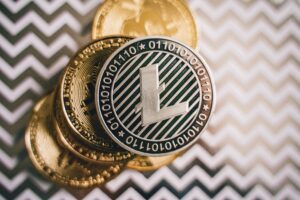The cryptocurrency business is rapidly expanding, with Bitcoin now being the most popular keyword fueling the crypto craze. There are a growing number of people who see the crypto market as an easy method to make money in a short period of time. Following the financial crisis, the popularity and growth of cryptocurrencies exploded.
Because of their tremendous market demand and little inflation risk, digital currencies might be an excellent long-term investment. Many investors started seeking more secure investments and alternatives to standard fiat currencies. We all know Bitcoin is the king of all cryptocurrencies, but does it have any parallels to Britcoin? Let’s have a look!
What Is Britcoin?
Britcoin is currently in its early stages, and no decision about whether or not to deploy the CBDC in the UK has been made. CBDCs, on the other hand, have long been on the Bank of England’s radar. Several talks and a discussion paper were given on the subject last year. CBDCs are similar to cryptocurrencies, but they are not the same. Central banks will regulate CBDCs for one reason.
It’s the polar opposite of cryptocurrencies, which are decentralized, meaning there is no central authority behind them; instead, a network of users provides the backing. Bitcoin was founded in 2009 to circumvent the conventional banking system in the aftermath of widespread dissatisfaction with the sector that had erupted following the financial crisis of 2008.
- How Does Britcoin Work?
The Bank of England might generate E-currency tokens in the same manner that paper currency is created. As a result, users might use Britcoin to purchase and sell products and services without dealing with traditional institutions, reducing transaction fees. An engagement forum for senior “stakeholders” and strategic insight into non-technological parts of the CBDC has also been created by the BoE, as has a technology forum for the CBDC.
What is Bitcoin?
Bitcoin is digital money known as a cryptocurrency that may be exchanged for products and services from sellers who accept Bitcoin as payment. It is possible to purchase, sell and trade goods and services without the involvement of a central bank or government agency. Since its debut in 2009, Bitcoin has become one of the most popular virtual currencies in the world.
Anonymous founder of Bitcoin Satoshi Nakamoto claimed that his motivation for creating the cryptocurrency was to create a digital payment system based on cryptographic evidence rather than faith. Some bitcoin holders purchase bitcoin as a venture hoping that its value would grow, while others utilize bitcoin as a payment or accept bitcoin payments as money.
- How Does Bitcoin Work?
Known as a blockchain, bitcoin is based on the concept of a distributed public blockchain. As the name indicates, blockchain is a connected collection of data made up of units known as blocks that include information about every transaction, including the date and time of the transaction, the total amount, the buyers and sellers, and a personal identification code for each trade. Entries are linked together in chronological sequence to form a digital chain of blocks.
Britcoin vs Bitcoin
In the United Kingdom, the Britcoin cryptocurrency was established and is based. On the other hand, Bitcoin is digital money that runs independently of any central authority or government monitoring. Britcoins, like other cryptocurrencies, enabled traders to conduct transactions securely and anonymously without the necessity of a bank account.
That’s why people could use Britcoins as an alternative currency, which was formerly exchanged on a now Britcoin Exchange (GBP). Bitcoin, on the other hand, uses peer-to-peer software and encryption. According to the bitcoin system, all bitcoin transactions are recorded in a public ledger, and copies are kept on servers all around the globe.














